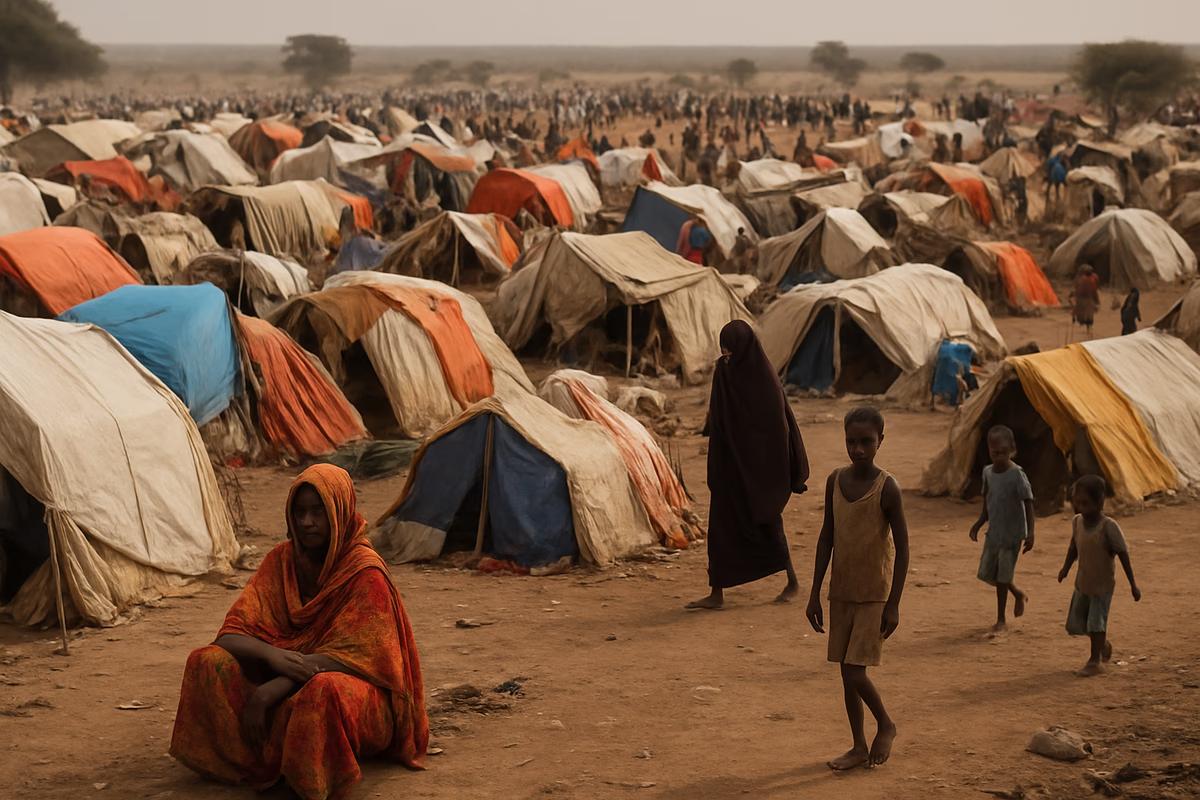New Delhi: More than eight years after his arrest, the Bombay high court on Friday acquitted former Delhi University professor G N Saibaba in an alleged Maoist links case for want of valid sanction for prosecution under the Unlawful Activities (Prevention) Act.
Following the HC order, the National Investigation Agency -- which had taken over the probe from Maharashtra police -- moved the Supreme Court against the acquittal. The SC, however, rejected NIA's request for immediate stay to the order.
Setting aside the life imprisonment awarded to Saibaba by the trial court, the high court noted that while the fight against terrorism was important, procedural safeguards can not be sacrificed 'at the altar of perceived peril to national security'.
Saibaba, 52, is likely to be released from Nagpur central jail where he is lodged since his arrest in May 2014 on Saturday, his lawyers said.
The high court's Nagpur bench of Justices Rohit Deo and Anil Pansare in its 101-page judgment noted that the sanction to prosecute the accused under the UAPA was 'bad in law and invalid'.
Saibaba, who is wheelchair-bound due to 90 per cent physical disability, should be released forthwith unless his custody was required in any other case, the court said.
Welcoming the ruling, his wife A S Vasantha Kumari said they had faith that he would be cleared from the case as he was innocent.
The HC also allowed the appeals filed by five other convicts, acquitting them of all charges.
In March 2017, a sessions court in eastern Maharashtra's Gadchiroli district convicted Saibaba and others including a journalist and a Jawaharlal Nehru University (JNU) student for alleged Maoist links and for indulging in activities amounting to 'waging war against the country'.
The trial court held Saibaba and others guilty under the stringent UAPA and Indian Penal Code (IPC).
The sanction to prosecute under the UAPA was granted in 2014 against the five accused who had been arrested initially. The sanction to prosecute Saibaba was granted in 2015.
The HC pointed out that in 2014 when the trial court took cognisance of the charge-sheet against him and others, there was no sanction to prosecute Saibaba under the UAPA.
The trial court's proceedings were thus 'null and void' in the absence of a valid sanction under the UAPA and hence the judgment of conviction was liable to be set aside, the high court held.
Terrorism poses an ominous threat to national security and vile and abhorrent acts of terror do evoke collective societal anger and anguish, the judges said.
"While the war against terror must be waged by the State with unwavering resolve, and every legitimate weapon in the armoury must be deployed in the fight against terror, a civil democratic society can ill afford sacrificing the procedural safeguards legislatively provided, and which is an integral facet of the due process of law, at the altar of perceived peril to national security," the HC said.
Speaking to PTI, Saibaba's wife Kumari said, "We had faith that he would be acquitted because he did not do anything wrong. There was no crime and no evidence. I am thankful to the judiciary and all those who supported us."
The couple's daughter is currently pursuing MPhil from Jamia Millia Islamia.
Asked how they coped with his absence in the last eight eight years, Kumari said, "Don't ask! There was a lot of struggle and patience involved in the last eight years. It was difficult for Sai also since his health deteriorated and he lost his job."
While Saibaba was a resident of Delhi at the time of his arrest, co-accused Mahesh Tirki (27) and Pandu Narote (who died while the hearing on his appeal was pending) were locals of Gadchiroli district and were farmers.
Hem Mishra (37) was a student who lived in Almoda district in Uttarakhand, Prashant Sanglikar (59) was a journalist who hailed from Deharadun in Uttarakhand and Vijay Tirki (35) from Chattisgarh was a labourer at the time of arrest.
Only Vijay Tirki had been granted bail in the case.
Activist and lawyer Prashant Bhushan termed the HC verdict as 'good news'.
Saibaba was kept in the 'Anda Cell' (high security cell) of the jail despite being disabled and in poor health, he claimed in a tweet.
The Communist Party of India-Marxist also welcomed the acquittal and demanded immediate release of all 'political prisoners'.
'The CPI-M welcomes (the) acquittal of GN Saibaba and expresses solidarity with him. Many more continue to be persecuted under false charges. Release all political prisoners immediately,' the party said.
As per a study conducted by a rights group, out of 8,371 persons arrested under the UAPA between 2015 and 2020, only 235 were convicted.
The report, prepared by the People's Union for Civil Liberties (PUCL), examined data from the National Crime Records Bureau and the NIA website. As per the report, many of the accused in UAPA cases fail to get bail and are eventually acquitted.
Welcoming Saibaba's release, academician Ashok Swain tweeted, 'He was jailed almost as long (Narendra) Modi has been prime minister.'
Activist Kavita Krishnan said that Saibaba, a 'disabled human rights defender' had to suffer what amounted to torture in prison which damaged his health. 'Shame,' she tweeted.
Supreme Court lawyer Indira Jaising expressed her 'heartfelt tribute to Pandu Narote', the co-accused who died in prison.
All India Majlis-e-Ittehadul Muslimeen (AIMIM) chief and Hyderabad MP Asaduddin Owaisi said that Saibaba 'suffered immensely in prison for years because of UAPA'.
'UAPA is a monster created by the collaboration of BJP and Congress. Its victims are mostly innocent Muslims, Dalits, Adivasis and dissenters. Only 3 per cent of accused have been convicted under UAPA, but innocent people arrested under it remain in jail for years,' he said in a series of tweets.
Disability rights activists also lauded the ruling.
The National Platform for the Rights of the Disabled (NPRD) said that in spite of repeated appeals, Saibaba was denied bail even on medical grounds.
—PTI





















